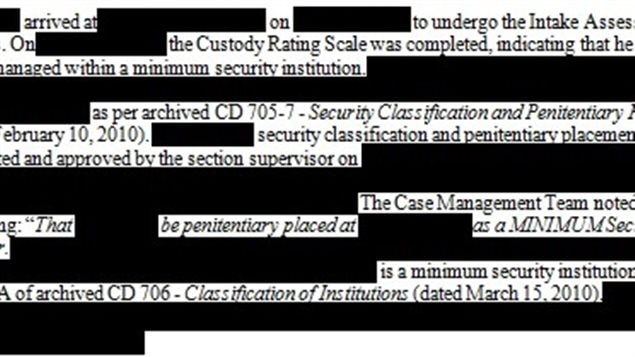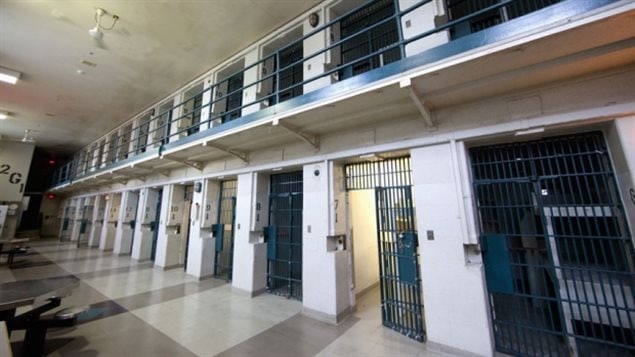Too often, when inmates die in federal penitentiaries their families are left frustrated and suspicious because they are not given enough information about what happened, found Canada’s prison watchdog. He has issued a report on the issue called “In the Dark.”
‘Simple, straightforward questions’ are unanswered
Correctional Investigator Howard Sapers says he receives complaints about this from families of inmates every year. “The complaints are usually about their inability to have very simple, straightforward questions answered and to get factual information about how their son or daughter or spouse died,” he says.
ListenTypically, relatives or spouses get a letter or a phone call informing them of the death, but when they ask for details they are often told to file a request under Canada’s Access to Information law. Obtaining information can take a year, and in one case, took three. When the information comes, it is often heavily redacted or censored.

Privacy law rigidly applied
Correctional Services cites privacy laws when declining to provide information but Sapers thinks they often are applied too rigidly: “In the public interest and in the interest of transparency and also just decency and compassion that information could still be shared with family members.” Typically, he says, the information comes out in any case during a subsequent coroner’s investigation or a medical examiner’s judicial inquiry.
Every year between 50 and 70 people die while detained in federal penitentiaries (where anyone serving a sentence of more than two years is held). The causes may be suicide, accident or homicide. But even in cases where the cause is natural, Sapers says the death may be shocking and families have a right to know what happened.

‘Open by default’ recommended
Sapers says Correctional Services should commit to a presumption of sharing information with families as soon as it is available, providing updates as investigations proceed. This he says would be in keeping with the current government’s commitment to be open by default.
Compassion, dignity, transparency, accountability
Families should have access to an information bulletin explaining on how to get information and what to expect. And he says penitentiary staff should be trained on how to best transmit such information. In all Sapers makes nine recommendations to remedy the problem.
“This really is as much about compassion and dignity in death as it is about transparency and accountability.”







For reasons beyond our control, and for an undetermined period of time, our comment section is now closed. However, our social networks remain open to your contributions.